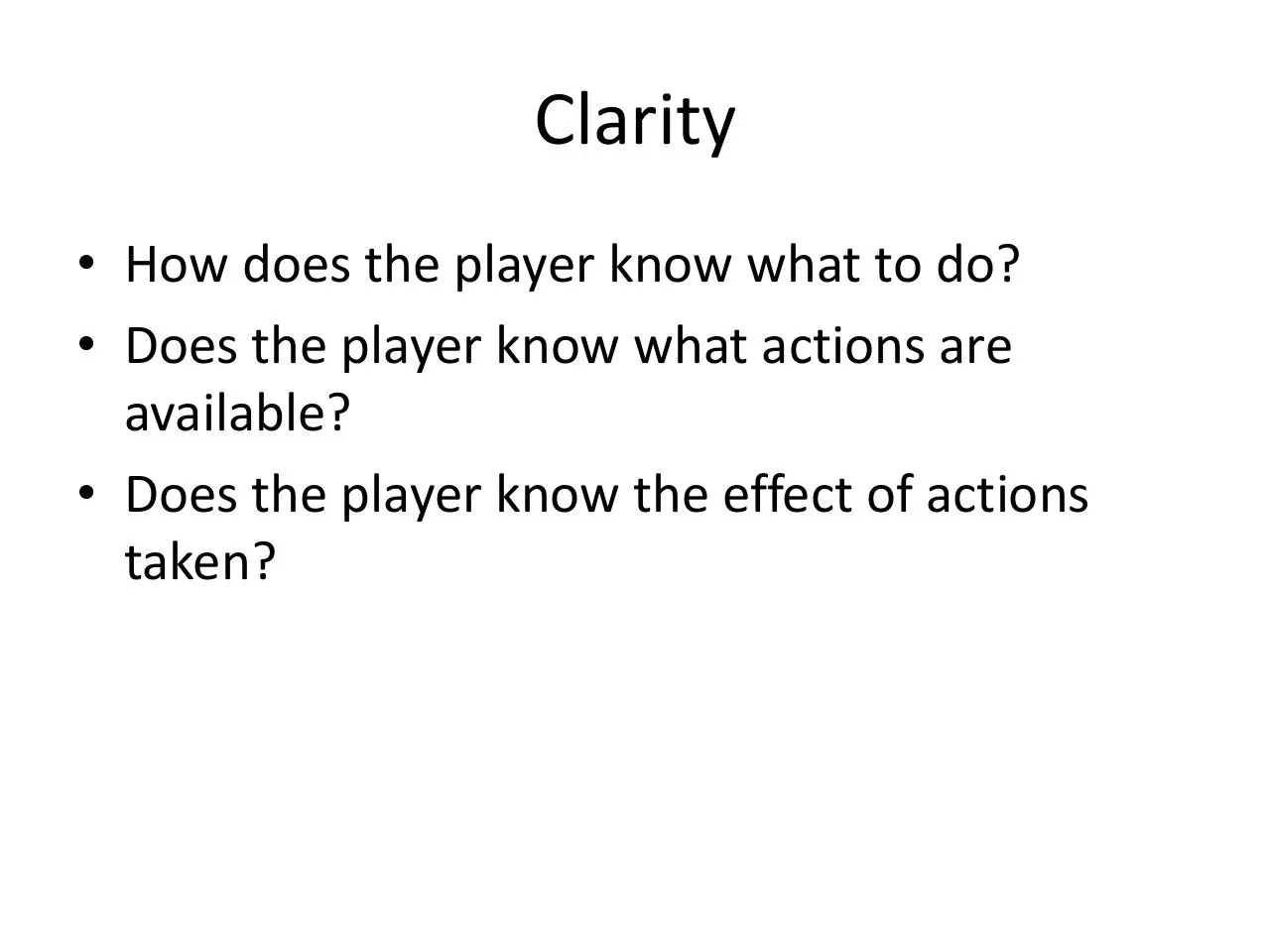Game Design Points (PDF)
File information
Title: Game Design Points.1
Author: mould
This PDF 1.5 document has been generated by Microsoft® PowerPoint® 2010 / 3-Heights(TM) PDF Merge Split API 4.9.17.0 (http://www.pdf-tools.com), and has been sent on pdf-archive.com on 17/02/2018 at 02:38, from IP address 135.23.x.x.
The current document download page has been viewed 242 times.
File size: 197.14 KB (8 pages).
Privacy: public file





File preview
Properties of Games – fast forward
•
•
•
•
•
•
Goals
Clarity
Choice
Resources
Progression
Variety of encounter
• and more, but these are key
Goals
• What is the player supposed to do?
• Short-term goals (maybe just survive)
• Long-term goals (find the princess)
• Best games have a mix of short, medium,
long-term goals
Clarity
• How does the player know what to do?
• Does the player know what actions are
available?
• Does the player know the effect of actions
taken?
Choice
• The player must have options
• How many options? Are the options viable?
• The best games offer multiple appealing
options at every moment, so that the player
has difficult choices to make
Performative and Deliberative Choice
• Arcade games, sports: primarily performance
• board games, strategy games: primarily
deliberation
• other computer games: somewhere between
• Suggestion for project: promote deliberation
Progression
• Does the player accumulate resources (power,
technology) further into the game?
• Computer games: gain experience, powers,
equipment; access new levels, abilities
• Traditional games: often lack progression in
this sense
• Powerful design tool for increasing
engagement
Resources
• Many choices involve resources: how to spend
gold? Should I save up iron to buy a battleship
or spend it on three destroyers?
• Resources can be tangible (crystal, gold) or
intangible (time, attention)
• What resources are available? What tradeoffs
must the player make?
Variety of Encounter
• How many different situations can arise within
the game?
• Computer games: different enemies, levels
– often variety achieved by human-scripted content
• Traditional games: different scenarios arising
– chess: different arrangements of pieces
– bridge, poker: different hands play differently
• Greater variety of encounter -> greater replay
Download Game Design Points
Game Design Points.pdf (PDF, 197.14 KB)
Download PDF
Share this file on social networks
Link to this page
Permanent link
Use the permanent link to the download page to share your document on Facebook, Twitter, LinkedIn, or directly with a contact by e-Mail, Messenger, Whatsapp, Line..
Short link
Use the short link to share your document on Twitter or by text message (SMS)
HTML Code
Copy the following HTML code to share your document on a Website or Blog
QR Code to this page

This file has been shared publicly by a user of PDF Archive.
Document ID: 0000735206.